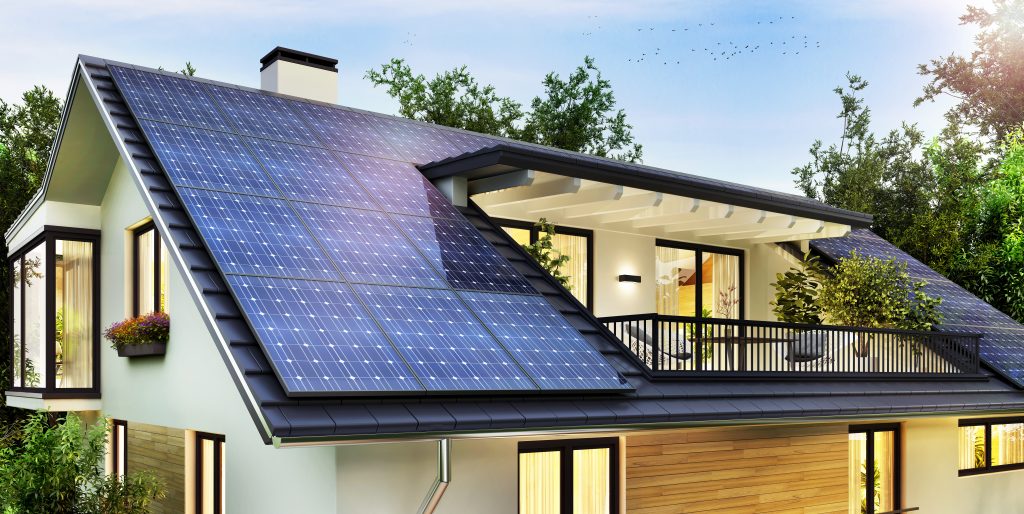You can also listen to this podcast on iono.fm here.
SIMON BROWN: I’m chatting now with Dominique d’Hotman. He’s head of ooba Solar. Dominique, I appreciate the early morning. I think for many solar is a no-brainer. It’s around secure power and it’s not cheap. I think some are sitting on the fence – can they afford it? But ultimately, [as] you put out in a note, it’s going to increase the value of our home and potentially the equity in our home. My first question is: When you say ‘equity’, what do we meaning by ‘equity in our home’
DOMINIQUE d’HOTMAN: Morning. Thank you for the opportunity to speak to you and to your listeners. The equity in your home is essentially the value of the assets, less what you owe the bank on outstanding payments on the bond. So let’s say you have a R2 million home and you owe the bank R1 million still in repayments on the bond, you have R1 million of equity in that property.
SIMON BROWN: And improvements to the property obviously increase that R2 million value. Installing solar power – if I spend, I don’t know, anywhere between I suppose R100 000 and hundreds of thousands, depending on the size of the home and the size of the installation I need – is that expected then to increase the value of the property?
DOMINIQUE d’HOTMAN: Definitely. Given what’s happening in the country in relation to energy at the moment and what we expect to come at least over the next five to 10 years, solar is a very good investment because it adds to the value of the property. Given the solar assets, it provides a lifestyle return to the family who live in that home.
And given that it has the ability, if well designed and installed, to reduce the monthly running costs of that household, essentially it’s a productive asset. So it will certainly increase the value of the property.
SIMON BROWN: Is it a linear number? I’m suspecting not. What I mean by that is, if I spend R100 000 can I just, bottom line, add R100 000 to the value of the house? House selling is much more of an art than a science, so maybe it’s not linear.
DOMINIQUE d’HOTMAN: It really depends on the property. It depends on the market conditions at the time, so it isn’t linear. And in one way the sooner the property is sold, the more directly you could attribute the value.
SIMON BROWN: Good point.
DOMINIQUE d’HOTMAN: That’s on the one side. On the other side is if the plant, if the solar installation has been performing well and there’s a track record of that, that could potentially even contribute more to the value because now you have a demonstrable way to say, well, the electricity consumption in our house was R2 000 a month – just a make a number – and we installed this solar system two years ago. And since installation our electricity spend now to Eskom or the City of Cape Town, the municipality or whatever, is now only R500 or R800. So there’s a value. It’s not just the value of the asset, but again it’s the return that it’s able to generate for the household.
SIMON BROWN: And I imagine it also helps it sell quickly. I’m thinking if I’m going to show days on a Sunday, I’m going to start with those with secure power – solar on the roof, or whatever the case may be. So it’s probably speeding up the selling process, which might not necessarily be a saving, but could be.
But also, if you’re selling, it’s just a more pleasant experience to sell quicker.
DOMINIQUE d’HOTMAN: That’s definitely the case. We don’t have much official data from a Status A or one of those. But anecdotally from the real estate network that ooba work with, feedback from agents on the ground is that this is in demand and buyers are specifically asking if there is backup power, is solar installed. Those houses are certainly selling faster.
SIMON BROWN: It goes without saying, but let’s just be clear about it, it is to keep it maintained. Truthfully it’s to keep the whole house maintained, I suppose.
But to your point, if there’s a saving there make sure that you do the required maintenance and everything so that it remains an attractive asset.
DOMINIQUE d’HOTMAN: Yes. That is a very, very important point. So solar installations are not a for … type of investment. They do need to be maintained. Panels, for example, need to be cleaned, probably at least twice a year, depending on where they’re installed. In KZN, for example, we have different conditions from what we have in Gauteng or the Western Cape. And the configuration of the system itself – how it’s configured, how much it should be self-generating, how much it is using from the batteries. So maintenance is a critically important part of not only maintaining but enhancing the value of the solar asset and of the property itself.
SIMON BROWN: We’ll leave it there. Dominic d’Hotman, head of ooba Solar, I appreciate the early morning.
Listen to the full MoneywebNOW podcast every weekday morning here.

